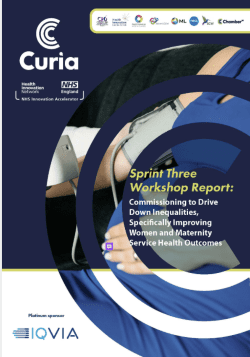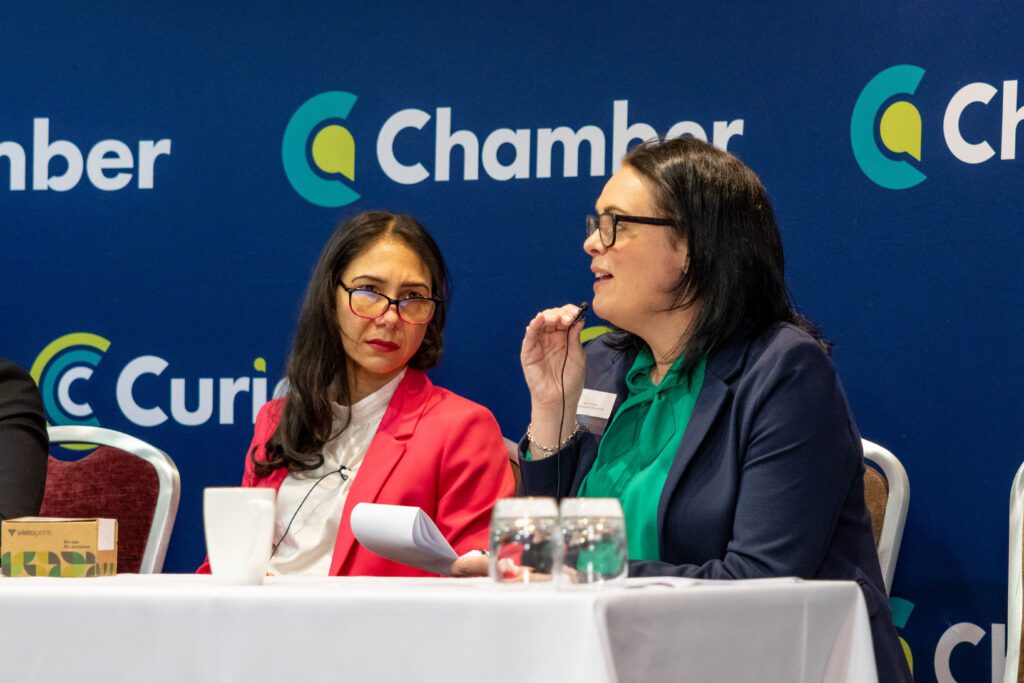A Clear Diagnosis: Systemic Failings in Women’s Health
The Sprint Three Workshop Report, Commissioning to Drive Down Inequalities, Specifically Improving Women and Maternity Service Health Outcomes exposes a system still largely reactive, fragmented, and unable to address the complex, real-world experiences of women across the NHS. The report acknowledges that women’s health has long been deprioritised – marginalised in commissioning frameworks, absent from innovation pipelines, and often invisible in national strategies.
Crucially, the report frames these systemic shortcomings as surmountable – if national policy, local commissioning, and innovation pathways can be aligned around prevention, trust-building, and co-production.
Six Strategic Recommendations for Transformation
A strength of the report lies in its thematic clarity. It identifies six “transformation domains” as levers for change, each underpinned by real-world case studies:
- Tackling Health Inequalities:
The report highlights cultural, informational, and structural gaps affecting women from deprived and minority ethnic backgrounds. Initiatives such as Walsall Together’s direct listening exercises exemplify the value of embedding community voice in commissioning. - Redesigning Innovation Pathways:
A familiar lament runs through the findings – innovation is often piloted repeatedly but rarely scaled. The call for national directories of validated solutions and faster commissioning routes is particularly well-founded. - Rebuilding Trust through Prevention:
The emphasis on trust – delivered not through digital apps alone but via community intermediaries like midwives and peer educators – is a welcome recognition of the human foundation required for system-wide adoption. - Early Years Interventions:
Perhaps the most future-focused section, this domain makes the case for embedding reproductive and women’s health education into curricula and community programmes. It recognises prevention not just as a cost-saving tool but as a population wellbeing imperative. - Workforce and Cultural Change:
The report deftly critiques siloed professional structures, arguing for flexible, multidisciplinary teams. It spotlights leadership behaviours – not just new roles – as central to transforming service culture. - Technology, Data, and Funding Alignment:
Here, the emphasis is on enablers: interoperable IT systems, procurement reform, and ring-fenced funding. Importantly, the report cautions against technology displacing human connection – an insight often missing from digital transformation narratives.
Policy Recommendations Rooted in Practice
The proposed national reforms are refreshingly specific. These include:
- A national innovation passport to prevent duplicative approvals and reduce risk aversion in commissioning.
- Outcome-based tariff structures to incentivise trust, early engagement, and health literacy rather than throughput.
- Ring-fenced multi-year funding for preventative models, to break free from the unsustainable cycle of pilot dependency.
This grounding in operational detail strengthens the report’s credibility and positions it as a serious framework for reform rather than an aspirational wishlist.
Real-World Case Studies
What distinguishes this report is its inclusion of tangible, grassroots innovations. Case studies such as:
- Pregnancy Sickness Support’s advocacy for hyperemesis gravidarum sufferers;
- Essential Parent’s multilingual digital health education platform;
- Walsall Together’s community-led engagement with underrepresented women;
- Industry-led diagnostics for gentamicin-related neonatal risk;
illustrate what success could look like if commissioning frameworks better supported scalable, evidence-based innovations.
The report does not idealise these initiatives. Instead, it notes how even highly effective models remain trapped in funding cycles or lost in opaque procurement systems. The examples thus function as both inspiration and indictment.
A Moment of Opportunity – and Risk
The increased visibility of women’s health issues, the momentum of the Women’s Health Strategy, and the broader public appetite for health equity are all called out in this report. Yet they caution that without urgent action – particularly on commissioning reform and national leadership – this could become another missed moment.
Towards the end of the sprint, mobilisation became the main focus of the discussion. There is a clear sense that the time for “pilots and piecemeal progress” is over. What is needed now is implementation at scale – with the lived experience of women, especially the most marginalised, embedded at every level.
Final Thought: A Blueprint Worth Building On
The Sprint Three Workshop report stands as a strategic, evidence-based, and deeply human response to the long-neglected issue of women’s health inequality. Its insistence on prevention, community voice, and commissioning reform marks it out from earlier efforts that tinkered around the edges.
What remains is political will and delivery capability. With its blend of grassroots insight, systems thinking, and actionable policy, this report offers both. The NHS, if serious about equity and innovation, should use it as a commissioning blueprint – and finally deliver on decades of unmet promise in women’s health.

The full report, which can be accessed here, is free for subscribers of Curia’s Health, Care, and Life Sciences Research Group, public sector and registered charities.
For more information about Curia memberships, reach out to ben.mcdermott@chamberuk.com

